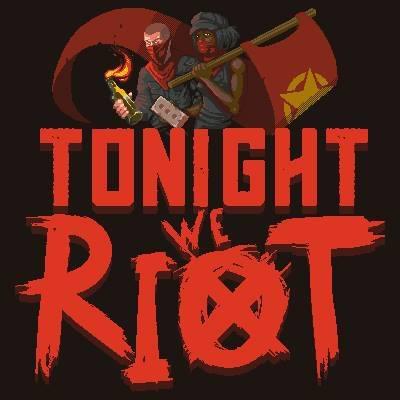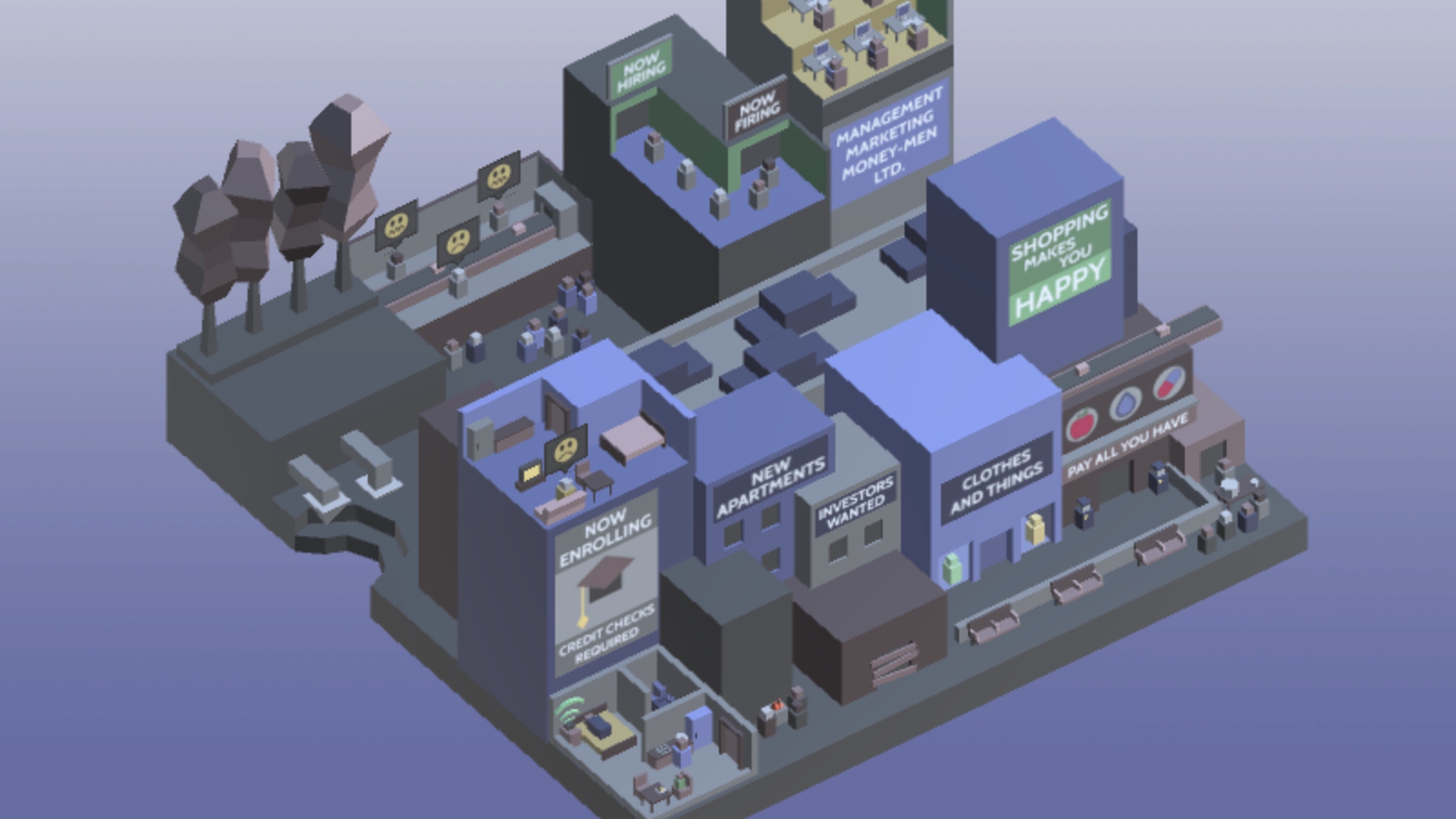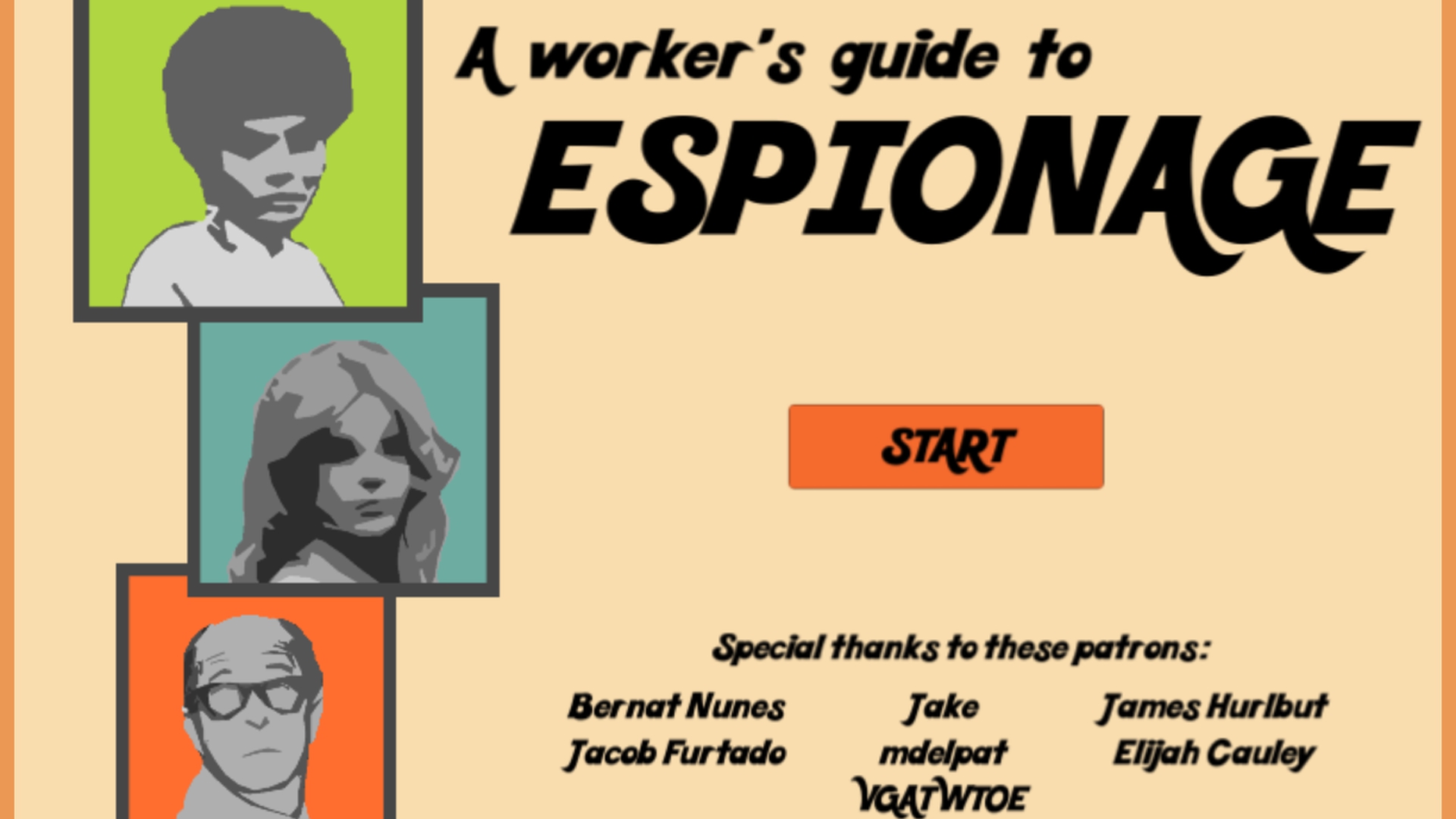Interview with Pixel Pushers Union 512
by
Jamie Woodcock (@jamie_woodcock),
Ted Anderson
June 25, 2019
Featured in Workers Game Jam (#9)
On worker coops and political games
inquiry
Interview with Pixel Pushers Union 512
On worker coops and political games
Jamie is an editor of Notes from Below
Ted Anderson is a member of the worker-owned cooperative Pixel Pushers Union 512
Pixel Pushers Union 512 is a worker-owned indie dev team based in Texas. They are working on a game called Tonight We Riot, which “is equal parts brawler and strategic crowd control combat.” This means you get to direct a crowd of pixel art workers to take on factory management, the boss class, as well as chainsaw wielding mechs. We talk more about this in the interview below!

Could you tell us about what Pixel Pushers Union 512 is and how it came into being?
Pixel Pushers Union 512 came into being because of a few things. My own historical interest in the Wobblies, nearly two decades of a career in the game industry, and wanting to try something new with the folks who had come together to work on “Tonight We Riot.”
What was your interest in the wobblies and how did this affect your game making practice and pixel pushers union?
I got interested in the IWW (Wobblies) because of my love of history. After watching a documentary on them, I figured that their form of organization could work well for game development, too. So we gave it a shot! Why not try out shop democracy as a small team and see if that led to better results?
So what did that mean in practice for Pixel Pushers?
Pixel Pushers Union 512 started simply as a means to label our team, then we started figuring out how we’d organize it, and what that would mean for things like divvying up tasks, profits, and responsibilities. Right now we operate on the principles of shop democracy. Every worker gets a vote on major decisions, and every worker on a project gets an equal cut of the profits after we’ve put away a percentage for a nest egg (which, itself, would be divvied up equally, should the whole thing fold ever). No singular person is in control of the group, and we make sure that everyone’s voices are heard.
So how does it feel to work like that versus AAA? How do you deal with disagreements?
This project has felt a lot more direct and hands on. Mostly because there’s no such thing as delegating tasks when you’re a smaller team working on a tighter loop of a game. We haven’t ever had any really heated disagreements on the game, but we’ve mostly discussed our way through varying opinions to find a solution to whatever we’re discussing that fits the goal of what we want to achieve rather than any individual opinion by the merit of it being an opinion. If that makes sense.
Absolutely, so how do you see the relationship between worker coops and the GWU movement?
With what I know of the GWU, the relationship would be a close one, and one where we show other workers an alternative to the standard model.
Great! Now, In the game jam we’ve set organising at work as a theme. This has involved discussions about politics and games / political games - how do you understand the relationship?
To me, everything is political. If for nothing else than the context in which media (or what have you) is created. We are all a sum of our own histories, as well as the histories that came before us, and the actions - both large and small - that shape (and continue to shape) the world around us. Something being political doesn’t make it edgy or negative, it’s just acknowledging that none of us are free from those histories, even if we’d like to be. So in making an overtly (and unapologetic) socialist video game about worker liberation we’re only pushing that relationship further.
That’s a great way to put it. So how does that work in the game that you are making? In what ways are socialist politics part of the game?
The game sets up its world from the get go by explaining to the player the level of exploitation and poverty that the workers are dealing with. It shows, too, that as they protested this peacefully they were met with violence (statistically, the police have been shown to be the ones who escalate and provoke violence at protests, not the other way around). We believe this sets up the brawler aspect of the game in a guilt-free manner. These people have been pushed to the brink and given no other avenue to make their lives better than to oust the people responsible for so much pain and suffering.
The mechanics of the game back up the idea of this being a game based on worker liberation. There is no direct hero in the game. Instead, the player plays a random assortment of folks who pick up the flag and charge forth when one of their comrades falls. Also, for some weapons, you get a weapons multiplier per member of your crowd. We’re all capable of helping one another in our lives, and we believe this aspect of the game represents that well.
Granted, the game can’t be all serious and all politically intense all the time, so we lighten the load with some really intense boss battles involving wacky enemies like giant woodchippers and mutant squids who are just plain angry about being mutants. You’ll fight mech suits, hover cars, laser-blasting guard gated communities, and a host of other curious baddies all on the final battle against our game’s Big Bad, Mr. Chet Whippleton III, who’s a huge jerk.
I really like the idea of having a mechanic with no direct hero. How did you come up with this idea? Are there still limitations? I’ve always thought this was one of the biggest issues for leftie/socialist games.
We came up with the idea after realizing that the mechanic we had (the crowd) was made up of lots of people, and that if we used the other aspect of the crowd (replacing your character with a member of the crowd) it’d be impossible to have a single “hero” character leading the game. Which, in the end, neatly dovetailed into our political angle: That every person is a hero of a revolution. We all do our part in lifting one another up when we fall, and only through collective action can we topple power structures. Or destroy a mech suit with brickbats and Molotovs. Whatever the goal may be.
Ok so final question, if resources, time, energy, and so on were not a constraint, what kind of game would you make? What themes mechanics would it explore?
Haha, oh my, that’s a really open ended question. There’s never a shortage of ideas, but right now, if I had my druthers and all that you listed, I’d love to do a participatory MMO set in the world of Cormac McCarthy’s “The Road.” People working together or against one another to shape the factions of a world on the brink of destruction. Can you craft something from the ashes and sullen haze? Man, that’d be exciting. I’d love to explore the idea of pitting players against the world, and each other, but instead of it being something like “Day Z” and the like, where players are largely incentivised to murder one another for fancy guns, this would be a toss up of whether or not you work together to survive, or avoid one another to save your own resources. I love the idea of removing resources from a game world instead of having them re-spawn. Eat that can of beans? Another won’t re-spawn there. So be sparing.
Featured in Workers Game Jam (#9)
Subscribe to Notes from Below
Subscribe now to Notes from Below, and get our print issues sent to your front door three times a year. For every subscriber, we’re also able to print a load of free copies to hand out in workplaces, neighbourhoods, prisons and picket lines. Can you subscribe now and support us in spreading Marxist ideas in the workplace?
Read next

Interview with Colestia
by
Jamie Woodcock,
Colestia
/
June 25, 2019

